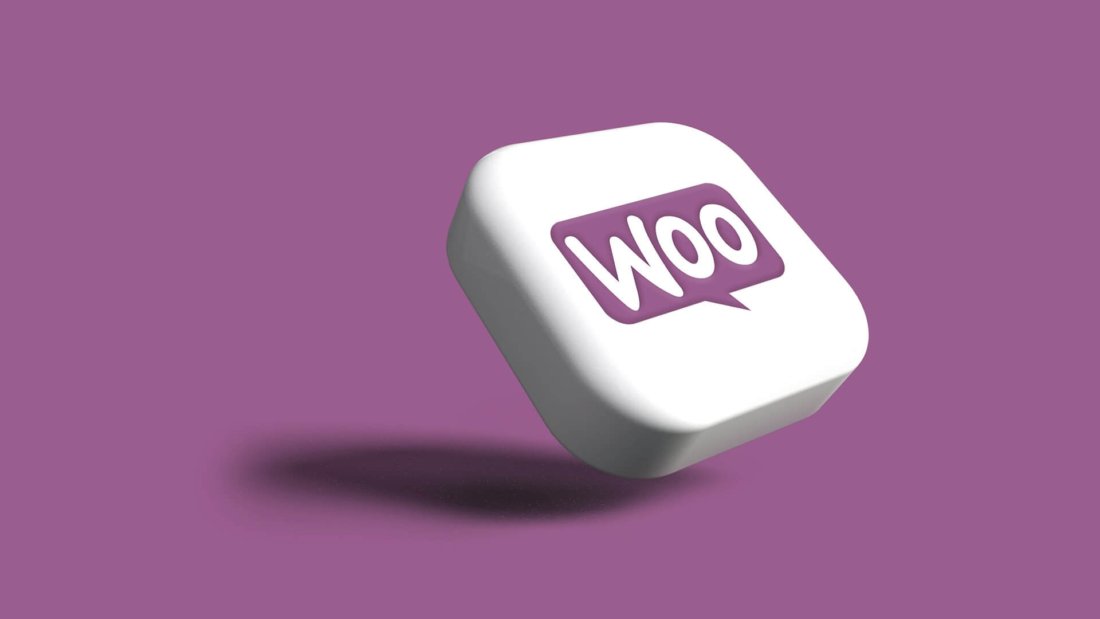Choosing the right foundation for your online store can make or break your eCommerce success. With dozens of platforms available, the decision often comes down to three popular contenders: Shopify, WooCommerce, and Wix. Each platform has carved out its own niche in the market, but which one deserves your investment?
The truth is, there’s no universal “best” solution. The right ecommerce platform for small businesses depends on your specific needs, technical expertise, budget, and long-term goals. Some entrepreneurs need the simplicity of drag-and-drop builders, while others require the flexibility of open-source solutions.
In this comprehensive ecommerce CMS review, we’ll break down each platform’s strengths, weaknesses, and ideal use cases. By the end, you’ll have a clear understanding of which platform aligns with your business vision and technical requirements.
Shopify: The Best Ecommerce Platform Comparison Contender
Shopify has built its reputation as the go-to platform for serious online retailers. Since launching in 2006, it’s powered over a million businesses worldwide, from small startups to major brands like Gymshark and Allbirds.
What Makes Shopify Stand Out:
Shopify was designed specifically for eCommerce, which shows in every aspect of the platform. Unlike general website builders that added shopping features as an afterthought, Shopify built everything around selling products online. This focus translates into robust inventory management, seamless payment processing, and powerful sales analytics right out of the box.
Also Read: What’s Included in a Professional eCommerce Website Development Package?
The platform handles the technical heavy lifting automatically. Server maintenance, security updates, and performance optimisation occur behind the scenes, allowing you to focus on growing your business rather than managing infrastructure.
Shopify’s Key Features:
- Professional templates designed for conversion
- Built-in payment processing (Shopify Payments)
- Comprehensive inventory and order management
- Mobile-responsive admin dashboard
- Extensive app ecosystem (over 6,000 apps)
- Multi-channel selling (social media, marketplaces, in-person)
- Advanced analytics and reporting
- 24/7 customer support
The Investment Required:
Shopify operates on a monthly subscription model starting at $29 for the Basic plan. The Shopify plan costs $79 monthly, while Advanced Shopify runs $299 monthly. Each tier includes hosting, security, and core features, with higher plans offering reduced transaction fees and advanced reporting.
Where Shopify Excels:
Businesses that need to scale quickly find Shopify invaluable. The platform handles traffic surges effortlessly and offers enterprise-level features like advanced reporting and third-party calculated shipping rates. If you’re planning to sell across multiple channels or need complex inventory management, Shopify’s built-in tools save significant development time.
Shopify’s Limitations:
Customization beyond the provided options often requires coding knowledge or hiring developers. The monthly fees can add up, especially when factoring in premium apps and themes. Transaction fees apply unless you use Shopify Payments, which isn’t available in all countries.
Best For: Established businesses, rapid scalers, multi-channel sellers, and entrepreneurs who prioritize ease of use over customization flexibility.

WooCommerce: The Flexible Ecommerce CMS Review Winner
WooCommerce takes a different approach as a free WordPress plugin that transforms any WordPress site into a fully functional online store. This open-source solution powers approximately 28% of all online stores, making it the most widely used e-commerce platform globally.
The Open-Source Advantage:
Being open-source, WooCommerce offers unlimited customisation possibilities. Developers can modify any aspect of the platform, from checkout processes to product displays. This flexibility attracts businesses with unique requirements that standard platforms can’t accommodate.
The integration with WordPress provides access to thousands of plugins and themes, creating an ecosystem where almost any functionality is possible. Whether you need advanced SEO tools, membership sites, or complex product configurators, there’s likely a solution available.
WooCommerce’s Core Capabilities:
- Complete design freedom with WordPress themes
- Unlimited products and categories
- Flexible tax and shipping options
- Multiple payment gateway integrations
- Comprehensive reporting and analytics
- SEO-friendly structure
- Multi-language and multi-currency support
- Extensive developer community
Cost Considerations:
While WooCommerce itself is free, running a professional store involves several costs. You’ll need WordPress hosting ($ 10-$50+ monthly), premium themes ($50-$ 200), essential plugins ($ 0-$300+ annually), and potentially developer assistance for customisations.
The total cost varies dramatically based on your needs, but many businesses spend $ 500-$2000+ annually on hosting, themes, and plugins for a well-optimised store.
When WooCommerce Shines:
Businesses that need extensive customization find WooCommerce unmatched. The platform adapts to unique business models, whether you’re selling digital downloads, subscription services, or complex product bundles. The WordPress integration also makes it ideal for content-heavy sites that need robust blogging capabilities alongside eCommerce.
WooCommerce’s Challenges:
The flexibility comes with complexity. Setting up and maintaining a WooCommerce store requires more technical knowledge than hosted solutions. You’re responsible for security, updates, backups, and performance optimization. Without proper management, sites can become slow or vulnerable to security issues.
Ideal For: Businesses needing extensive customization, content-focused stores, developers comfortable with WordPress, and companies wanting full control over their platform.
Wix: The User-Friendly Ecommerce Platform for Small Business
Wix has evolved from a simple website builder into a comprehensive business platform that includes robust eCommerce capabilities. Known for its intuitive drag-and-drop interface, Wix appeals to entrepreneurs who want professional results without technical complexity.
Simplicity as a Strategy:
Wix’s greatest strength lies in its accessibility. The visual editor lets you design your store exactly as you envision it, with no coding required. This democratisation of web design has enabled countless small businesses to establish a professional online presence without hiring a developer.
The platform features artificial intelligence capabilities that enable the creation of a complete website based on your responses to a few questions. While these AI-generated sites require customisation, they provide a solid starting point for businesses looking to launch quickly.
Wix eCommerce Features:
- Drag-and-drop store builder
- Mobile-optimized templates
- Inventory management tools
- Multiple payment options
- Built-in marketing tools
- SEO optimization features
- Social media integration
- Analytics and Reporting
- 24/7 customer support
Pricing Structure:
Wix offers several eCommerce plans, starting at $23 per month for the Business Basic plan. The Business Unlimited plan costs $27 per month, while the Business VIP plan costs $49 per month. All plans include hosting, security, and core eCommerce features, with higher tiers offering additional storage and premium support.
Wix’s Sweet Spot:
Small to medium businesses that prioritize ease of use over advanced functionality find Wix appealing. The platform handles technical requirements automatically while offering sufficient customisation options for most standard stores. The integrated marketing tools also help businesses promote their products across various channels.
Where Wix Falls Short:
Advanced e-commerce features often lag behind specialised platforms like Shopify. Complex inventory management, advanced reporting, and extensive third-party integrations aren’t Wix’s strengths. The platform also lacks the scalability needed for rapidly growing businesses.
Perfect for: Small businesses, beginners, service-based companies looking to add product sales, and entrepreneurs who prioritise simplicity over advanced features.
Head-to-Head: Shopify vs WooCommerce vs Wix Analysis
Understanding how these platforms compare across key factors helps clarify which choosing ecommerce website builder makes sense for your situation.
Ease of Use: Wix leads in user-friendliness with its visual drag-and-drop interface. Shopify offers good usability with a learning curve for advanced features. WooCommerce requires the most technical knowledge but provides the most control.
Customisation Flexibility: WooCommerce excels with its unlimited customisation possibilities. Shopify offers moderate customization through themes and apps. Wix offers basic customisation options within its template system.
Scalability: Shopify excels at handling growth, from startups to enterprise-level businesses. WooCommerce scales well with proper hosting and optimization. Wix works for small to medium businesses but may struggle with high-volume stores.
Cost Structure: WooCommerce can be the most economical for tech-savvy users, but costs vary widely. Wix offers predictable monthly pricing for basic needs. Shopify sits in the middle with monthly fees plus potential app costs.
App Ecosystem: Shopify boasts the largest dedicated eCommerce app store. WooCommerce benefits from the vast WordPress plugin library. Wix has a growing but smaller app market focused on general business needs.
Support Quality: Shopify provides excellent 24/7 support from eCommerce specialists. Wix offers good support, but agents may lack deep eCommerce expertise. WooCommerce relies on community support and third-party developers.
SEO Capabilities: WooCommerce, built on WordPress, offers superior SEO flexibility. Shopify offers solid SEO tools, albeit with some limitations. Wix has improved significantly but still trails in advanced SEO features.
Also Read: eCommerce Website Development in Nigeria

Choosing Ecommerce Website Builder: Matching Platforms to Business Types
The best ecommerce platform for small businesses varies significantly based on your specific industry, goals, and technical comfort level.
Shopify Works Best For:
- Physical product retailers with inventory management needs
- Businesses planning rapid expansion
- Multi-channel sellers (online, social media, in-person)
- Companies needing advanced analytics and reporting
- Subscription box services
- Dropshipping businesses
- Brands requiring professional customer support
WooCommerce Suits:
- Businesses with unique or complex requirements
- Content-heavy sites combining blogging with eCommerce
- Companies with in-house technical expertise
- Stores needing extensive third-party integrations
- Businesses in highly regulated industries requiring custom compliance features
- Non-profits selling merchandise alongside donations
- B2B companies with complex pricing structures
Wix Appeals To:
- Service businesses adding product sales
- Creative professionals selling artwork or crafts
- Local businesses expanding online
- Entrepreneurs launching their first online store
- Companies prioritizing design flexibility over advanced features
- Businesses with limited technical resources
- Seasonal or hobby-based stores
Making Your Platform Decision
When choosing ecommerce website builder, consider these critical questions:
Technical Comfort Level: Are you comfortable managing hosting, security, and updates, or would you prefer an all-inclusive solution?
Growth Projections: Will you likely outgrow basic features within two years, or are current capabilities sufficient for your long-term vision?
Customisation Needs: Do you require standard eCommerce features, or do your unique business requirements necessitate custom solutions?
Budget Considerations: Can you afford to invest in monthly subscriptions and apps, or do you need to minimise ongoing costs?
Time Investment: How quickly do you need to launch, and how much time can you dedicate to learning and managing your platform?
Support Requirements: Do you require professional support to be readily available, or are you comfortable with community-based assistance?
Remember that switching platforms later is possible but involves significant time and potential data migration challenges. Choosing the right foundation from the start saves considerable effort in the long run.
The Shopify vs. WooCommerce vs. Wix debate doesn’t have a universal winner because each platform effectively serves different needs. Shopify excels for traditional retailers prioritizing ease of use and scalability. WooCommerce excels when customisation and flexibility are most important. Wix provides the most accessible entry point for small businesses and beginners.
Your ideal platform aligns with your technical skills, business model, growth plans, and budget constraints. Take the time to thoroughly evaluate each option, perhaps even testing their free trials or demos before making a commitment.
When you’re ready to build your e-commerce presence with expert guidance, PA DigiTech specialises in helping businesses navigate platform selection and create optimised online stores. Their team understands the nuances of each platform and can recommend the solution that best fits your unique requirements, ensuring your eCommerce venture starts on the strongest possible foundation.

